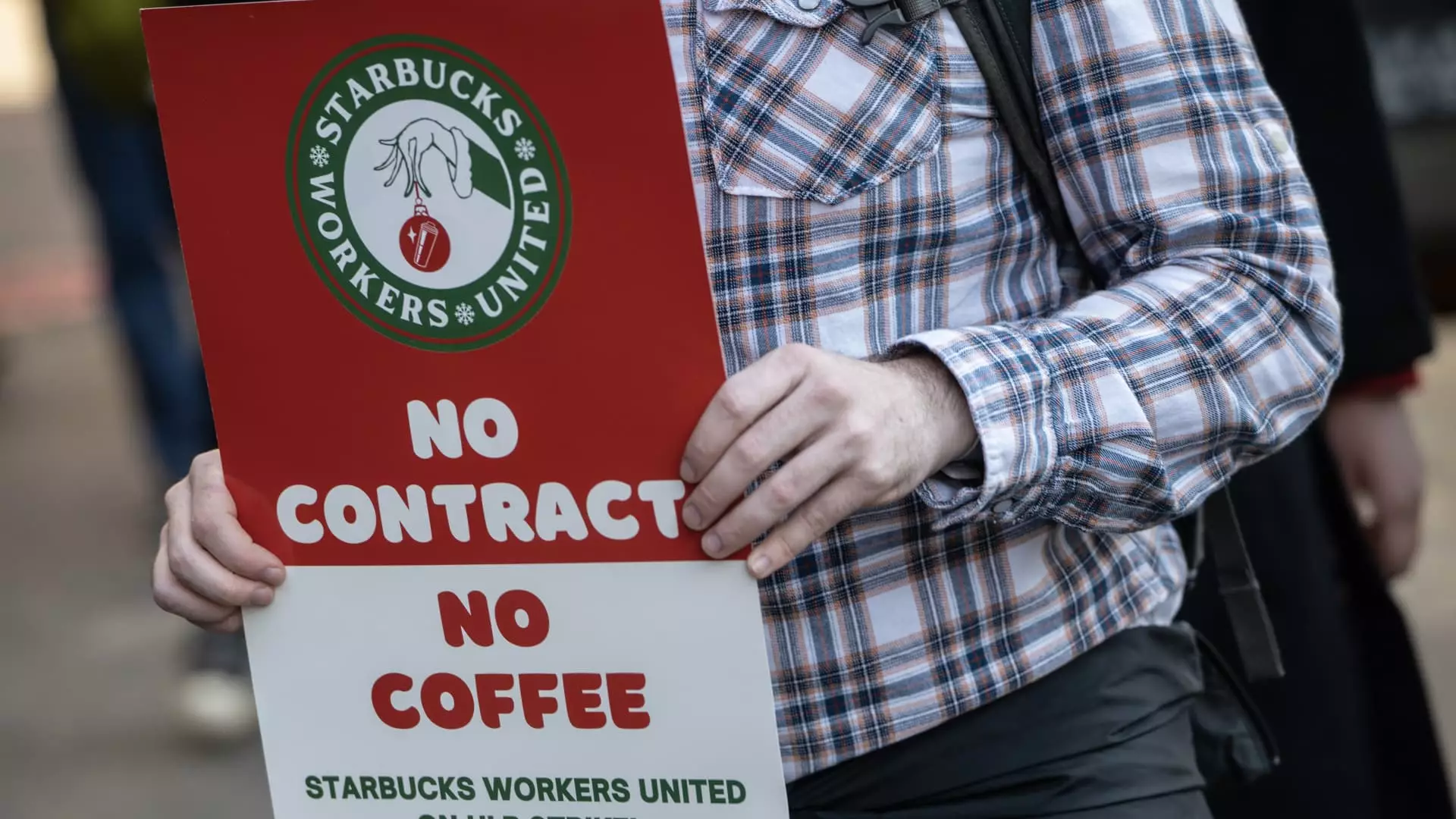As the holiday season approaches, tensions are simmering between Starbucks and its baristas, with workers in cities like Los Angeles, Chicago, and Seattle initiating strikes that extend through Christmas Eve. The union representing these workers, Starbucks Workers United, has expressed frustration over what they describe as the company’s retreat from previously established commitments. This escalating action is set to cause potential delays for holiday customers craving their favorite beverages and gifts from the popular coffee chain.
The union’s position centers around the demand for improved pay and benefits for baristas, who have been significantly affected by inflation and the rising cost of living. The union recently articulated its demands, calling for an immediate 64% increase in hourly wages and a total of 77% over the duration of a three-year contract. These figures highlight the urgency and gravity of their claims, as workers seek compensation that reflects their contributions to the company’s service and profitability, especially during peak holiday periods.
In response to the union’s demands, Starbucks has framed its proposals as realistic given the current economic conditions affecting the company. They have suggested only modest pay increases, asserting that immediate large-scale wage hikes are simply “not sustainable.” The company also alluded to recent sales declines, which may limit their ability to meet the union’s financial requests further. Starbucks has maintained that they are eager to return to negotiations, yet the union accuses them of stalling and not taking their proposals seriously.
The past year has proven difficult for Starbucks. The coffee giant has seen a decrease in sales as consumers explore alternative options. This situation reflects broader changes in consumer preferences, compelling Starbucks to navigate through challenging economic waters. The resultant financial constraints have led to smaller pay increases for employees in the coming year, intensifying baristas’ sense of urgency during this period of heightened consumer spending.
The strikes at Starbucks are not isolated. Echoing the sentiments of workers at Amazon, who have also initiated strikes, there is a growing trend of organized labor pushing back against corporations across various industries. Workers are increasingly demanding fair treatment and equitable pay, particularly in sectors that have thrived during the pandemic. This emergence of a collective worker voice could shape the landscape of labor relations not just for Starbucks, but for the corporate world at large.
As holiday traffic peaks and consumer expectations climb, the ongoing strikes by Starbucks baristas unveil a broader narrative of labor struggle within the U.S. The outcome of these negotiations will not only impact the workers involved but will also have lasting implications for Starbucks’ operational strategies and public image. Whether an agreement can be reached remains uncertain, but the implications for countless customers and employees are sure to resonate amid the festive rush.


Leave a Reply